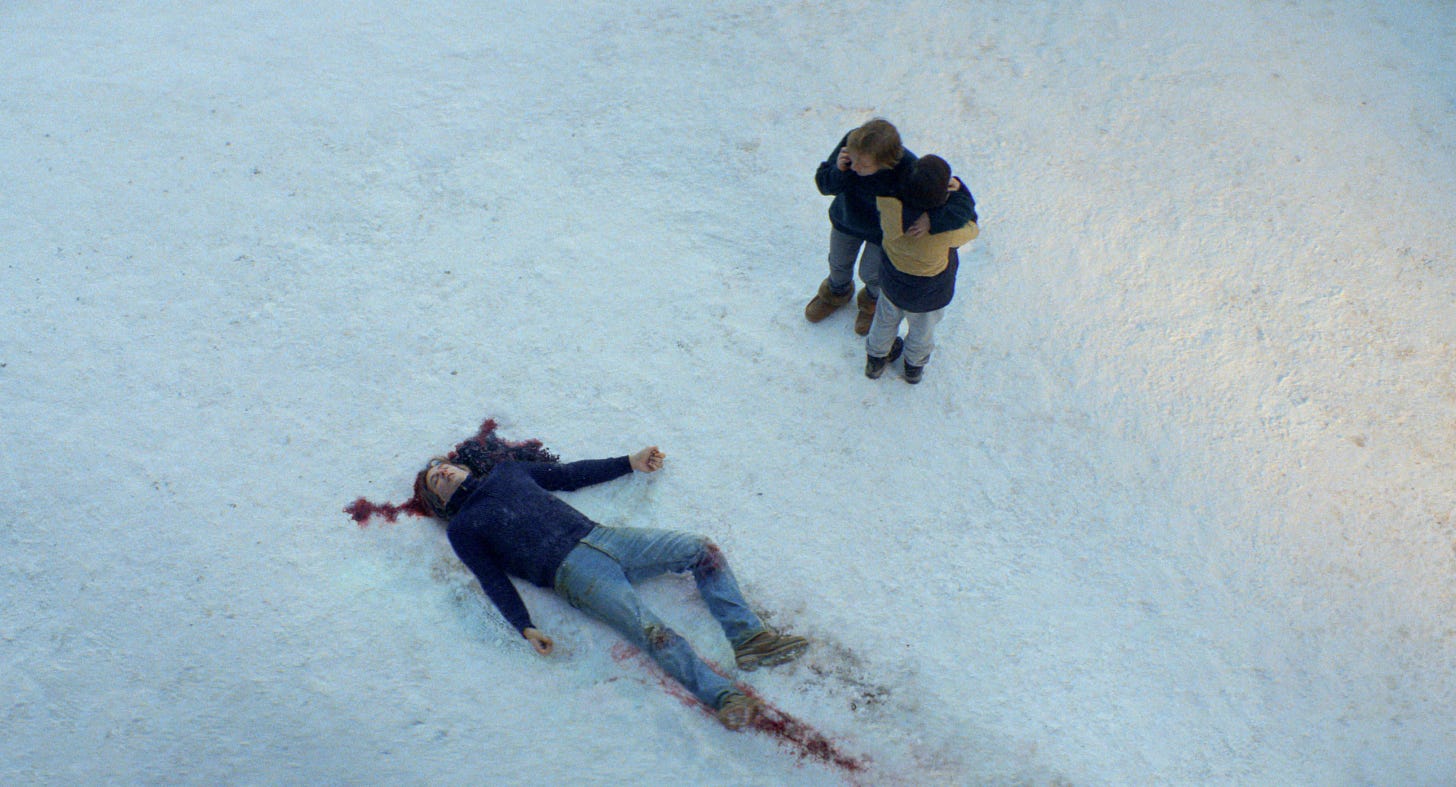Anatomy of a Fall Refuses to Give Viewers a Femme Fatale
It’s the anti-Gone Girl.
Justine Triet’s Anatomy of a Fall is a courtroom drama that has generally been praised for its refusal to provide easy or straightforward answers. I was never really in doubt as to how the trial should end though, and I’m not sure I was supposed to be. Rather than an exercise in ambiguity, you could instead read the movie as a story which—slowly, with methodical care—refuses to embrace the usual Hollywood narrative conventions about women, criminality, and culpability. The movie is a leisurely anti-noir, in which the trap is not the femme fatale, but the belief that femme fatale’s are out there, plotting and creating the plot.
Be warned there are going to be spoilers here if you worry about that sort of thing.
The not femme fatale here is Sandra (Sandra Hüller), a moderately successful writer of biographical fiction. When Sandra’s husband, Samuel (Samuel Theis) is found dead in front of their remote French home, the police suspect she did it. The resulting investigation reveals the fault lines in their marriage—Sandra’s infidelity (primarily with other women), Samuel’s guilt over the traffic accident that blinded their son Daniel (Milo Machado Graner), their sometimes violent fights. The jury is left to decide whether these tensions were enough to prompt Sandra to kill.
Again, a lot of reviews emphasize that you’re never told the truth; there are no flashbacks to show you what really happened, no retroactive revelation of the nefarious plot a la Gone Girl or any number of other noirs. But the evidence isn’t that ambiguous, and nor is Hüller’s (excellent) performance. There are no witnesses, no weapon, and a circumstantial motive, and Sandra’s entirely believable grief, fear, and concern never really looks opaque or deceitful. She hesitates, vacillates, and even lies, but they’re the hesitation, vacillation, and lies of truth—it’s a masterclass in the performance of non-performance.
With little to build a case on, either in fact or affect, why is the case even brought to court? The answer is that while Sandra doesn’t have much evidence against her, she is on the wrong end of a whole lot of tropes and narratives. As a successful, brilliant, bisexual professional woman with an active sex life, she’s perfectly cast by stereotype to be a manipulator and liar. One talking head on a news show Sandra watches quips that a writer murdering her husband is a much more entertaining story than a teacher killing himself; he might as well have said that a woman killing her husband is the stuff of pop myth and pulse-pounding sexy drama and big box office. Messier family drama, in which no one is really to blame, has a much more limited market share.
Anatomy of a Fall leans into that non-genre boringness. Sandra flirts lightly with a young woman interviewer and with her lawyer, but the camera, and the script, resolutely refuse to sexualize her; she looks positively dowdy as she is forced to admit to affairs in court. The pace is slow too, and at times almost funereal, with slow shots of the wintry landscape around the house, or the whole courtroom and film slowing to a crawl as Daniel delivers his final halting, decisive testimony. Moments of too high tension—like the verdict—are deliberately skipped over, as if Triet feels they’d overwhelm her determination to keep the drama out of her courtroom drama.
The movie spends a certain amount of time discussing the relationship between Sandra’s work and her relationships. Both interviewers and lawyers want to read her books as expressions of her life—or, alternately, as material she stole from her (supposedly) more brilliant husband. It’s hard not to make the connection there with Triet herself, as director and screenwriter (she co-wrote the script with her husband Arthur Harari.) The movie is, among other things, a female storyteller telling the story of a female storyteller in a way that plays with, but ultimately rejects, male modes, stereotypes, and conclusions. This is an anatomy of a fall which insists that Eve isn’t culpable.



Hi Noah. Try Toni Erdman. Comedy!!!
The acting is terrific !!